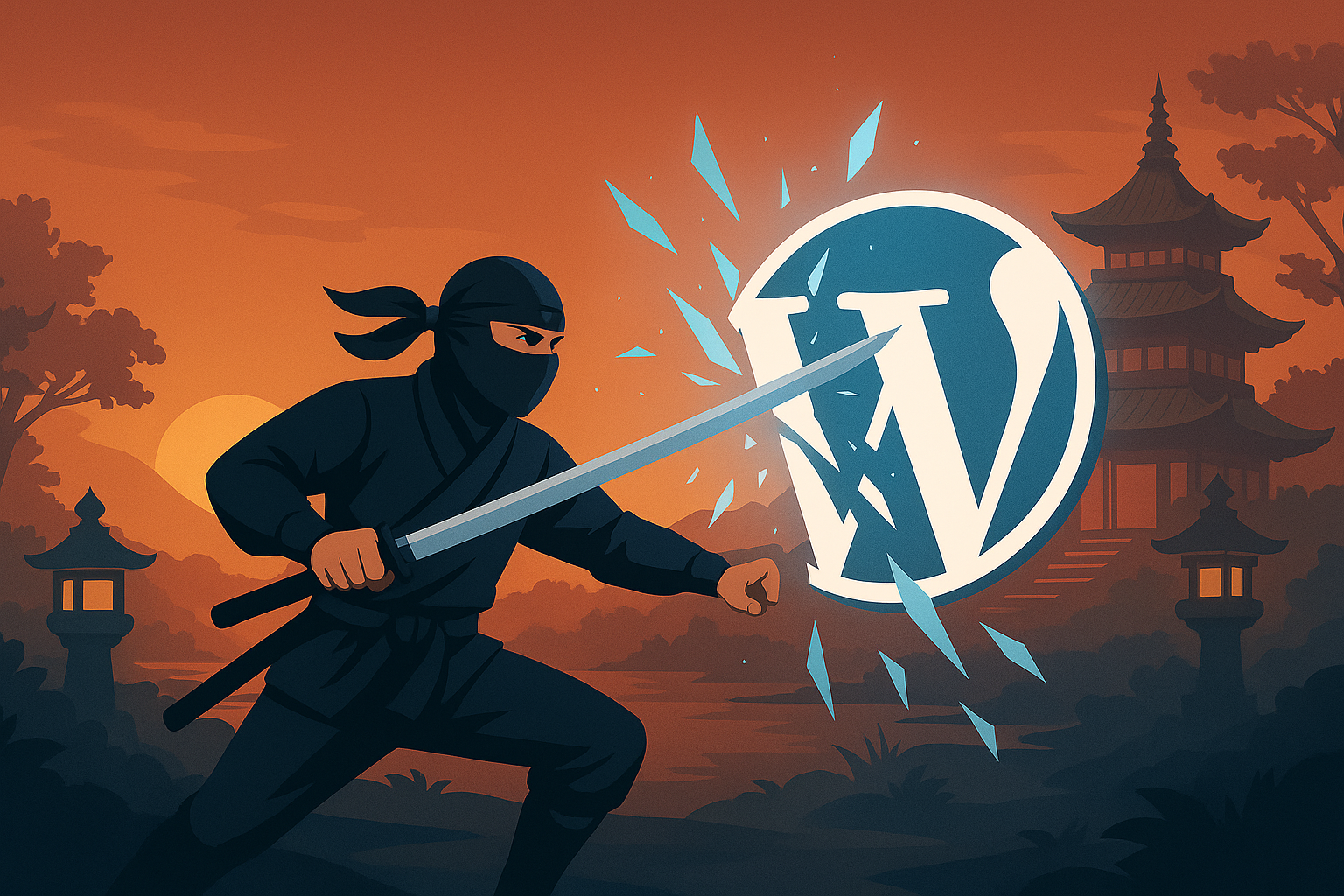
WordPress is everywhere. From small business sites to high traffic blogs, it remains the most widely used content platform. That popularity creates a strange tension. Leaders keep asking whether WordPress is the future, while their teams keep using it every day. Here is the honest view: WordPress is not the future of every build, but it is still the smartest tool for many businesses when it is managed properly.
The problem with WordPress
- Bloat and plugins. Many sites rely on dozens of plugins. Every extra dependency adds scripts, styles, database calls, and risk. The result is slower pages and more failure points.
- Security pressure. Popular software attracts bots. One outdated plugin can open the door. Security by plugin is not a strategy. You need updates, staging, least privilege, WAF, backups, and monitoring. See our Advanced IT Support.
- Scalability limits. WordPress is great for content heavy sites but can struggle under heavy transactions or complex flows. Architecture, caching, and hosting choices decide whether it scales or stalls.
- Not built for every future. Headless stacks, small services, and server side rendering are winning many new projects. WordPress can integrate, but it is not always the best base.
Why businesses still rely on WordPress
- Ease of use. Non technical teams can publish, edit, and ship content without tickets. That speed matters.
- Flexibility. With the right choices, WordPress can handle blogs, service sites, content hubs, membership areas, and even commerce. Our WordPress Experts keep it lean and maintainable.
- Cost effectiveness. For many use cases, a tuned WordPress site beats the cost and delay of a custom platform.
- Ecosystem and support. A massive community, proven themes, and quality plugins reduce risk when you know what to avoid. Pair that with Managed WordPress Hosting and you get speed and safety out of the box.
Real world context
A startup launches on WordPress to move fast. Growth hits. Traffic spikes. Marketing adds tracking, popups, and several plugins. Performance dips and the team blames WordPress. The real issue is not the CMS. It is choices: heavy themes, poor hosting, and no performance budget. With tuned hosting, caching, and fewer plugins, the same site recovers. When needs outgrow the stack, you do not panic. You evolve the architecture.
When WordPress is still the right answer
- Editorial teams and content led brands that value speed and workflow.
- Marketing sites that change often and need simple forms, landing pages, and analytics.
- Small to mid sized stores that can run lean until volume proves a custom path. For larger stores, plan a staged move with E Commerce Websites and App Development.
Where WordPress starts to struggle
- Complex app like experiences that demand real time features or heavy personalisation.
- Commerce at scale where promotions and flash sales cause sudden load spikes.
- Multi region delivery with strict performance targets and compliance rules.
The plugin problem and how to fix it
Plugins are powerful, but most are written for broad use, not your exact need. You inherit features, scripts, and admin screens you never use. That adds weight and attack surface. The fix is simple. Audit the stack, remove anything that is not essential, and replace multipurpose plugins with smaller focused ones. If a feature drives revenue, consider building it properly instead of stacking more plugins.
Performance is a strategy, not a toggle
Core Web Vitals decide rankings and conversions. Bloated themes and five slider libraries will not pass. You need a lean theme, image optimisation, server side caching, and a CDN. The hosting layer matters. Start with Managed WordPress Hosting. If you need more headroom, use VPS Hosting or move to a Dedicated Server. Unsure which stack fits your traffic pattern? See Web Hosting for guidance.
Brand, content, and growth still win
The platform is not your brand. A fast site with weak positioning still fails. Build a clear identity and keep it consistent across pages, ads, and emails. For that, start with Identity and Branding, then plug in growth with SEO and Creative Media. If your team is stretched, automate handoffs and routine tasks with AI and Automation.
How NinjaWeb keeps WordPress future ready
- We design around outcomes, not plugins. Lean builds, clear performance budgets, and real monitoring.
- We harden security with staging, least privilege, backups, WAF, and response plans via Advanced IT Support.
- We plan migrations and hybrids when needed. If a headless or custom module is right, we scope it with Business Solutions and deliver it alongside your CMS.
Decision guide
- If content speed and iteration matter more than complex logic, use WordPress and keep it lean.
- If performance, scale, or custom flows are critical, plan a hybrid or a custom path early.
- If you are unsure, test. Build a lean MVP, measure, and decide with data.
Final verdict
WordPress is not the future for every project, and that is fine. It remains a reliable tool for businesses that value speed, flexibility, and cost control. The difference between a site that struggles and a site that wins is the team behind it. Managed correctly, WordPress becomes an asset instead of a liability. If you need a clean plan, start a conversation and we will map your next stage with you.



